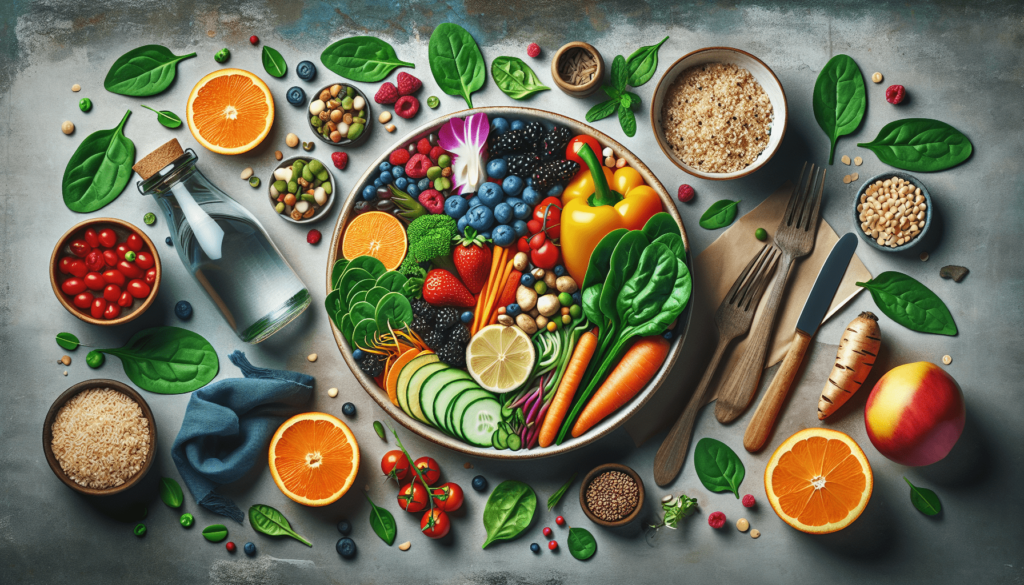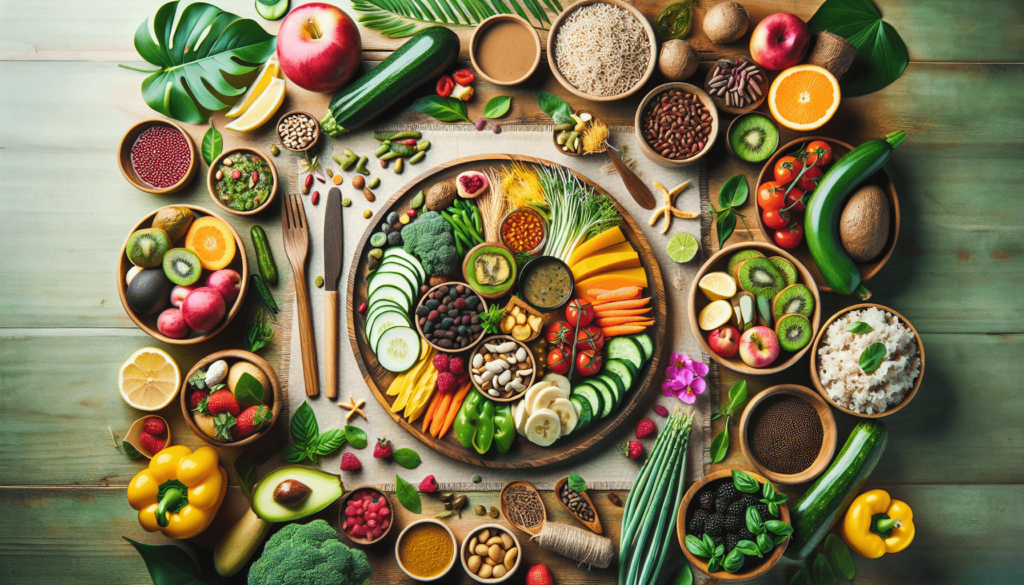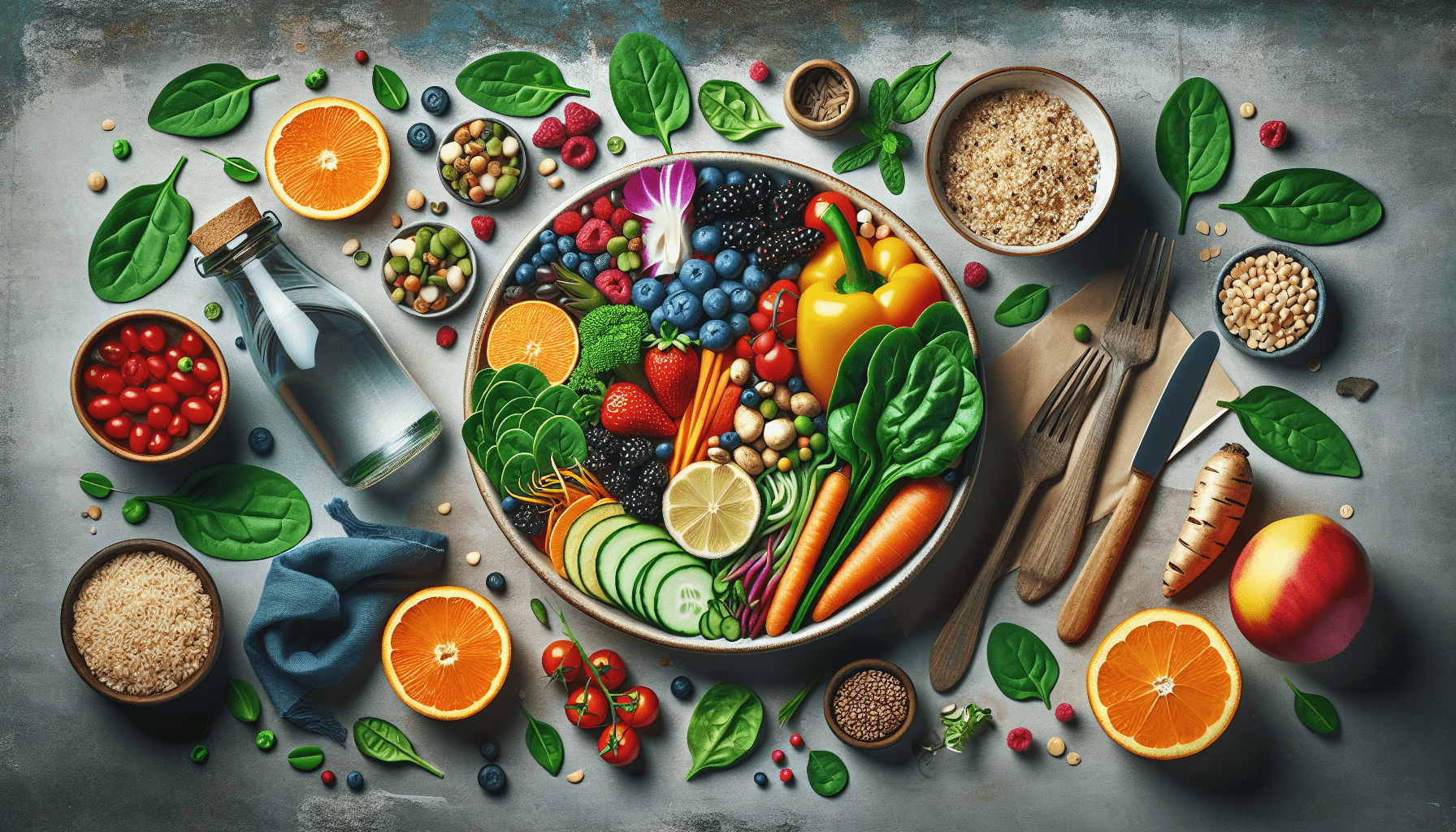Hey there! Have you ever thought about how your diet choices could have a positive impact on the environment? In this article, we will explore the role of veganism in environmental conservation. By choosing to follow a vegan lifestyle, you can significantly reduce your carbon footprint and help protect our planet for future generations. Let’s dive in and discover how simple changes to your diet can make a big difference in preserving our beautiful Earth.
Have you ever wondered how your food choices impact the environment?
Making the switch to a vegan diet can have a significant positive impact on the environment. From reducing greenhouse gas emissions to minimizing water usage, veganism plays a crucial role in environmental conservation. In this article, we will explore the various ways in which veganism aids in preserving our planet and why it is essential for a sustainable future.

Understanding the Environmental Impact of Animal Agriculture
Animal agriculture is known to be one of the leading contributors to climate change and environmental degradation. The production of meat, dairy, and eggs requires large amounts of resources, including water, land, and energy. Additionally, livestock farming produces massive amounts of greenhouse gases such as methane and nitrous oxide, which are potent contributors to global warming. By choosing a vegan lifestyle, you can significantly reduce your carbon footprint and help combat climate change.
How Veganism Reduces Greenhouse Gas Emissions
The livestock sector is responsible for a significant portion of global greenhouse gas emissions. Cows, in particular, produce large amounts of methane through enteric fermentation and manure decomposition. Methane is a potent greenhouse gas that is about 25 times more effective at trapping heat in the atmosphere than carbon dioxide over a 100-year period. By eliminating animal products from your diet, you can help reduce the demand for livestock farming and decrease greenhouse gas emissions.
The Impact of Animal Agriculture on Deforestation
Animal agriculture is a driving force behind deforestation, especially in regions like the Amazon rainforest. Forests are cleared to make way for grazing land and feed crops for livestock. Deforestation not only destroys valuable habitats for wildlife but also contributes to the loss of biodiversity and increases carbon dioxide levels in the atmosphere. By choosing plant-based foods over animal products, you can help protect forests and preserve precious ecosystems.

Water Usage in Animal Agriculture
Livestock farming is a water-intensive industry that requires vast amounts of water for animal drinking, irrigation of feed crops, and cleaning of facilities. The water footprint of animal products is much higher compared to plant-based alternatives. By adopting a vegan diet, you can help conserve water resources and reduce the strain on freshwater systems. Making simple changes in your food choices can have a significant impact on water conservation efforts worldwide.
The Connection Between Veganism and Food Security
Animal agriculture consumes a large portion of the world’s agricultural land and resources, which could otherwise be used to grow food directly for human consumption. Livestock farming is an inefficient way of producing food, as it takes more resources to raise animals for meat or dairy than to grow plant-based foods. By shifting towards a plant-based diet, you can help alleviate food shortages and promote food security for future generations. Veganism offers a sustainable solution to feeding a growing global population while minimizing environmental impact.
The Role of Veganism in Reducing Pollution
Livestock farming is a major source of pollution, releasing harmful substances such as ammonia, nitrous oxide, and antibiotics into the environment. These pollutants can contaminate soil, waterways, and the air, posing serious risks to both human health and ecosystems. By choosing plant-based foods over animal products, you can help reduce pollution and contribute to a cleaner environment. Veganism promotes sustainable and eco-friendly practices that benefit both people and the planet.
Veganism and the Preservation of Wildlife
Animal agriculture not only harms the environment but also threatens the survival of wildlife species around the world. Deforestation, habitat destruction, pollution, and climate change caused by livestock farming have devastating effects on biodiversity and natural ecosystems. By embracing a vegan lifestyle, you can help protect wildlife habitats and support conservation efforts. Veganism is not just about personal health; it is also about creating a better future for all living beings on Earth.
Making the Transition to a Vegan Lifestyle
Transitioning to a vegan lifestyle may seem daunting at first, but it is easier than you think. Start by incorporating more plant-based foods into your meals and exploring new recipes and meat alternatives. Connect with like-minded individuals in online communities or local vegan groups for support and advice. Experiment with different food sources of protein, iron, calcium, and other essential nutrients to ensure a balanced and nutritious diet. Remember that every small step towards veganism makes a difference for the environment and your health.
The Importance of Veganism in Environmental Conservation
Veganism is more than just a dietary choice; it is a powerful tool for environmental conservation. By opting for plant-based foods instead of animal products, you can help reduce greenhouse gas emissions, protect forests, conserve water resources, promote food security, reduce pollution, and preserve wildlife habitats. Your food choices have the power to make a positive impact on the planet and create a more sustainable future for generations to come. Join the movement towards veganism today and be an advocate for the environment.

